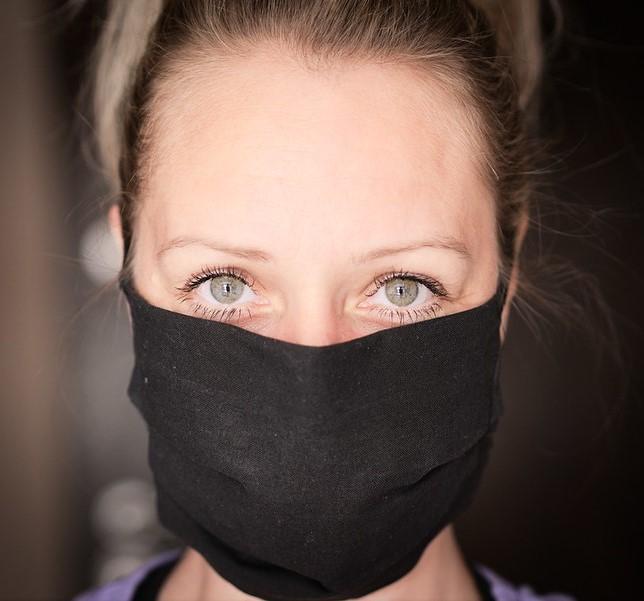According to the COVID-19 case tracker maintained by Johns Hopkins University, the United States reported 86,928 new cases yesterday, and 1,268 deaths, marking the first time since Nov 2 daily case counts have fallen below 100,000.
"But daily cases are still higher than the average during the summer peak," warned Rochelle Walensky, MD, Director of the Centers for Disease Control and Prevention (CDC) during today's White House coronavirus task force briefing. Walensky said hospitalizations were also still at record levels. There are 81,439 COVID-19 patients in US hospitals, according to the COVID Tracking Project.
In total, the US has seen 27,057,411 COVID-19 cases, including 464,372 deaths.
Walensky said now is the time to stay vigilant against the virus, and cautioned states against lifting mask requirements or allowing in-person events.
"We are committed to wearing masks still for the 100 days of the presidency," Walensky said, referring to a national mask wearing plan President Joe Biden has touted.
Walensky also said the CDC was conducting more sequencing of COVID-19 samples every day in an effort to detect the presence of variant strains in the United States. Per an update yesterday, the CDC recorded 79 more B117 cases for a total of 690 from 33 states (most still from Florida and California). There's also one more B1351 case and one more P1 case.
Vaccine strategy and supply
Also during today's briefing, Anthony Fauci, MD, director of the National Institute of Allergy and Infectious Diseases, addressed the issues of using one dose of the mRNA vaccines to quickly inoculate a larger percentage of Americans. Fauci said to do so intelligently would require studies on efficacy and immune response from a single dose.
"Those studies would take several month's time, by then it's a moot point," Fauci said. Fauci said the booster second dose of both the Pfizer and Moderna vaccines raises neutralizing antibodies 10 fold higher than a single dose.
Yesterday on "Meet the Press" Fauci said he expected US vaccine supplies will improve and begin to meet demand by March. To that end, Pfizer officials told USA Today they expect to cut production time for their mRNA vaccine in half, from 110 to 60 days.
The Pfizer vaccine is produced at three sites in the United States: In Chesterfield, Mo., then Andover, Mass., and is finished in Kalamazoo, Mich. It is the first mRNA vaccine being produced to scale.
Biden gets 67% pandemic approval rating
A new ABC News/Ipsos poll shows 67% of Americans approve of how the Biden administration is tackling the pandemic during the first few weeks of holding office. And though most poll participants said the distribution of vaccines has been fair, new data from the Kaiser Family Foundation (KFF) shows most older Americans have yet to be vaccinated.
The CDC COVID Data Tracker shows 59,307,800 COVID-19 vaccines have been distributed in the United States, and 42,417,617 have been administered. Roughly 10% of the US population has received at least one dose. Of that 10%, 29% were ages 65 and older, including residents of long-term care facilities.
Based on states' tracking ages of vaccine recipients, KFF found the share of adults 65 and older who have had at least one dose of the vaccine ranges from 34% in West Virginia to 10% in Pennsylvania.
"Nine states–West Virginia, North Carolina, Florida, Mississippi, Delaware, Texas, Michigan, New Jersey, and Wisconsin, plus the District of Columbia–report vaccinating at least 20% of their 65 and older population," KFF said. Florida has the highest vaccination rate among older adults with 29%.
Another new survey conducted by The Ohio State University Wexner Medical Center asked 2,000 Americans about post-pandemic life, and found 72% said they plan to continue to wear masks in public, 80% will still avoid crowds, and 90% plan to keep up frequent handwashing and sanitizer use after COVID-19.
"Flu cases and hospitalizations are way down compared to recent years and a lot of that is likely because precautions like masking, physical distancing and hand hygiene are absolutely working for flu," Iahn Gonsenhauser, MD, chief quality and patient safety officer at The Ohio State University Wexner Medical Center said. "I think a lot of people are realizing that what we've learned from COVID-19 can be applied more generally to keep our population healthy."
Biden says schools should reopen
In an interview that aired on CBS before the Super Bowl last night, Biden said it was time to reopen schools safely, and called the exodus of 3 million American women from the workplace and the mental health of children a "national emergency."
Biden said the CDC will offer new guidance to schools, but mentioned the need for fewer people in classrooms and improved ventilation systems in school buildings.
Last week, Walensky told reporters during a briefing that teacher vaccinations were not required for school reopenings.




















